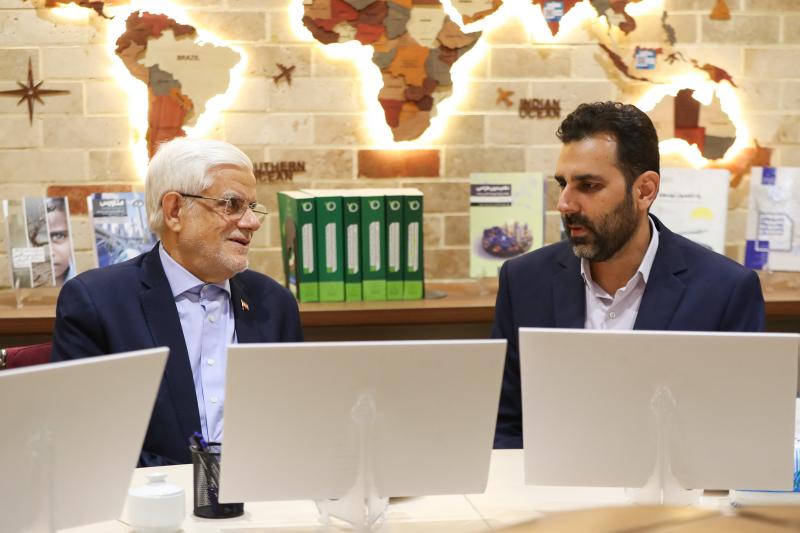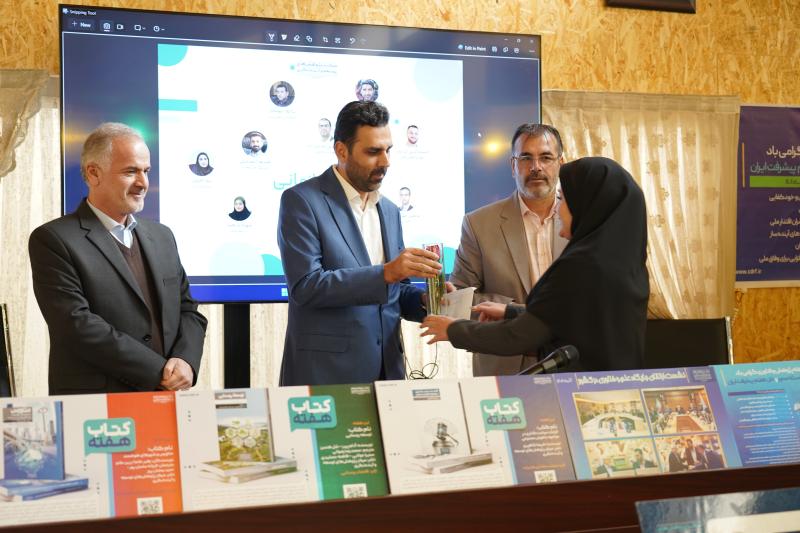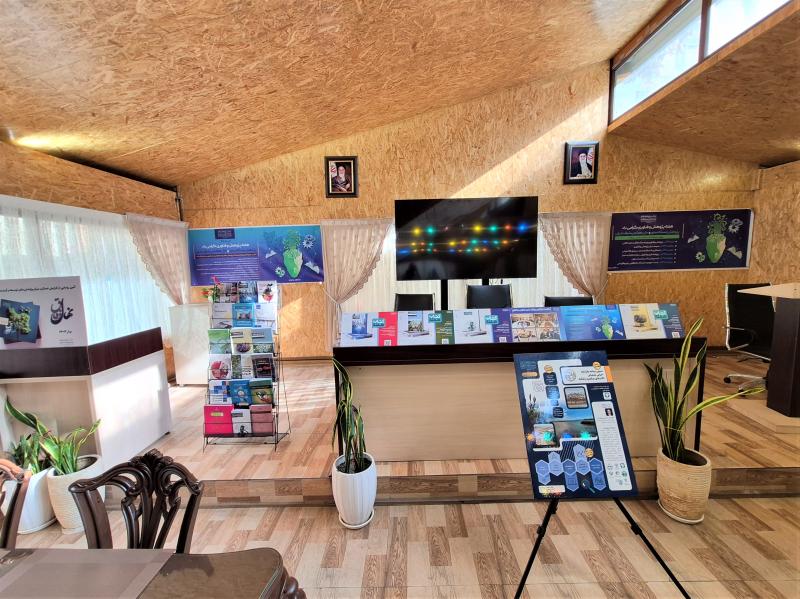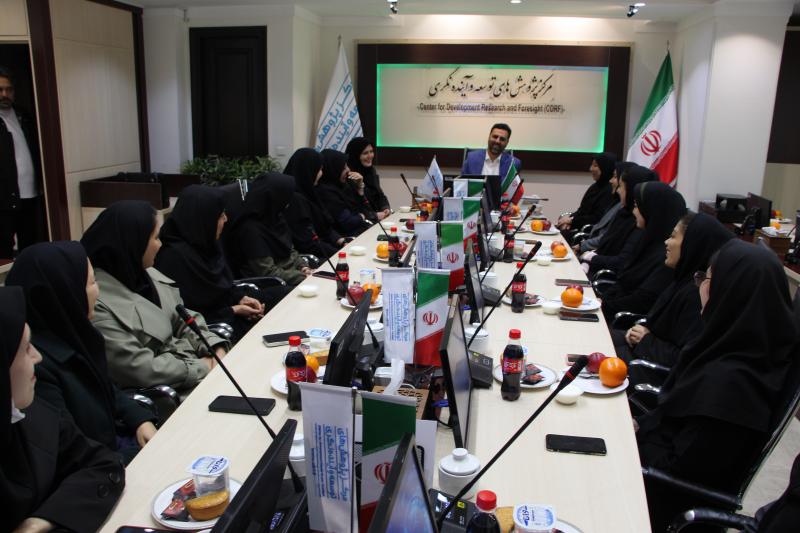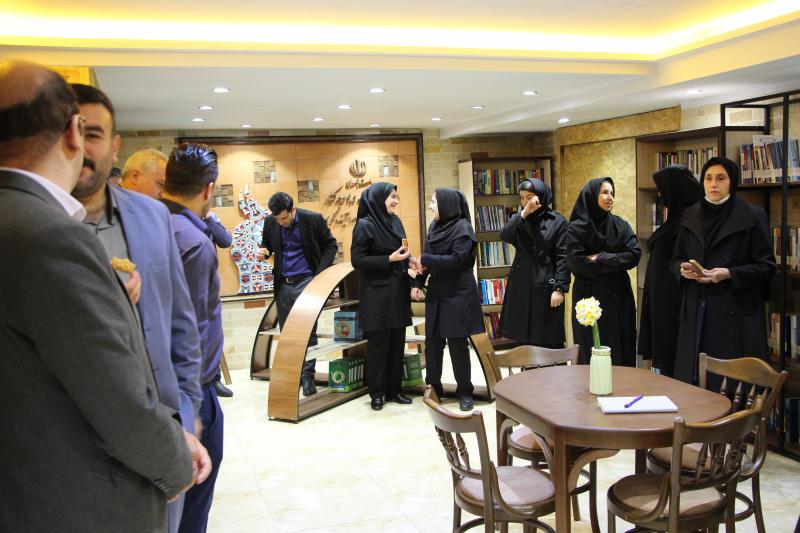
-
بررسی آییننامهها و دستورالعملهای برنامه هفتم پیشرفت
-
بررسی عوامل موثر بر افزایش تصادفات و تلفات جادهای و سوانح رانندگی و دادهکاوی تلفات انسانی
-
سازماندهی و بازآرایی فضایی آموزش عالی کشور
-
به روز رسانی سند ملی آمایش سرزمین
-
انجام مطالعات مناطق آزاد به عنوان نواحی پیشران اقتصادی کشور
-
اصلاح ساختار بودجه و پیاده سازی نظام یکپارچه مدیریت اطلاعات مالی دولت (IFMIS)
کلید واژه : policy recommendations
تعداد اخبار : 45
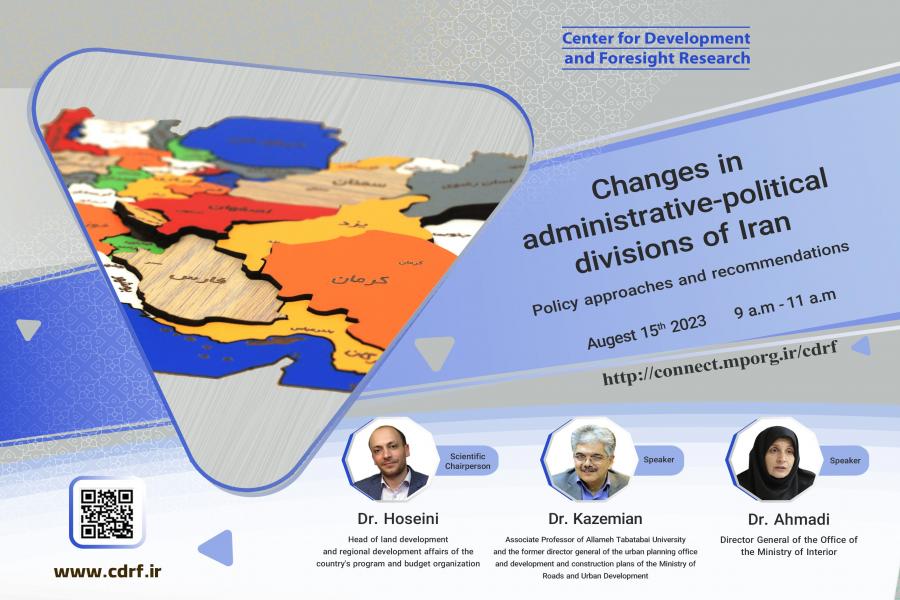
National Land Use Plan: The Key to Balanced Development and Budget Resource Allocation
The scientific-specialized conforence of "Transformations in the Administrative-Political Divisions of Iran: Approaches and Policy Recommendations" was held. 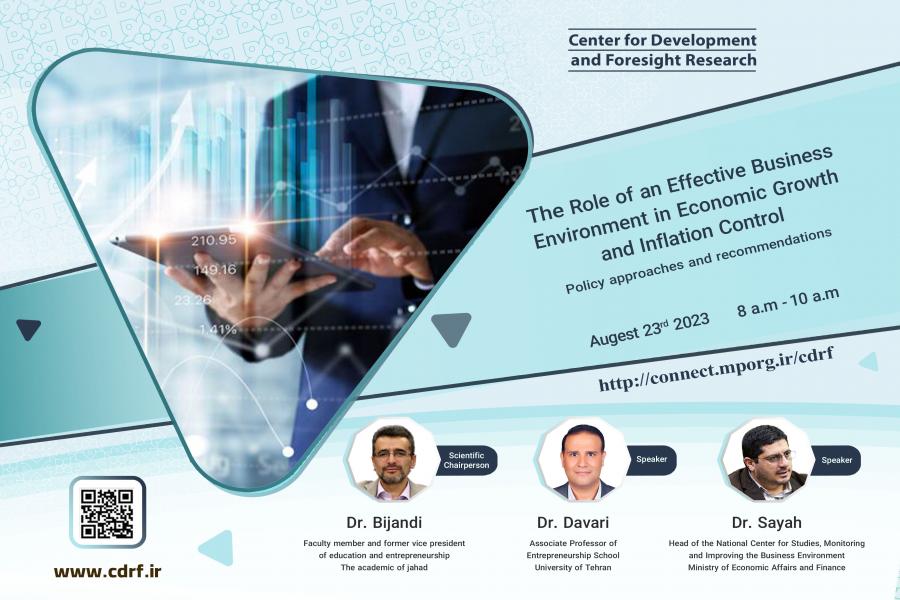
The Role of an Effective Business Environment in Economic Growth and Inflation Control: Approaches and Policy Recommendations
The specialized conference titled “The Role of an Effective Business Environment in Economic Growth and Inflation Control: Approaches and Policy Recommendations” was recently held. The conference was attended by several notable figures, including Dr. Mohammad Sadegh Bijandi, a former member of the academic board and deputy of education and entrepreneurship of the Academic Center for Education, Culture, and Research, who served as the scientific director. Other attendees included Dr. Ali Davari, an associate professor of entrepreneurship at the University of Tehran, and Dr. Amir Sayyah, the head of the National Center for Business Environment Studies, Monitoring, and Improvement of the Ministry of Economic Affairs and Finance, who both served as scientific speakers. The conference aimed to discuss approaches and policy recommendations for creating an effective business environment to promote economic growth and control inflation.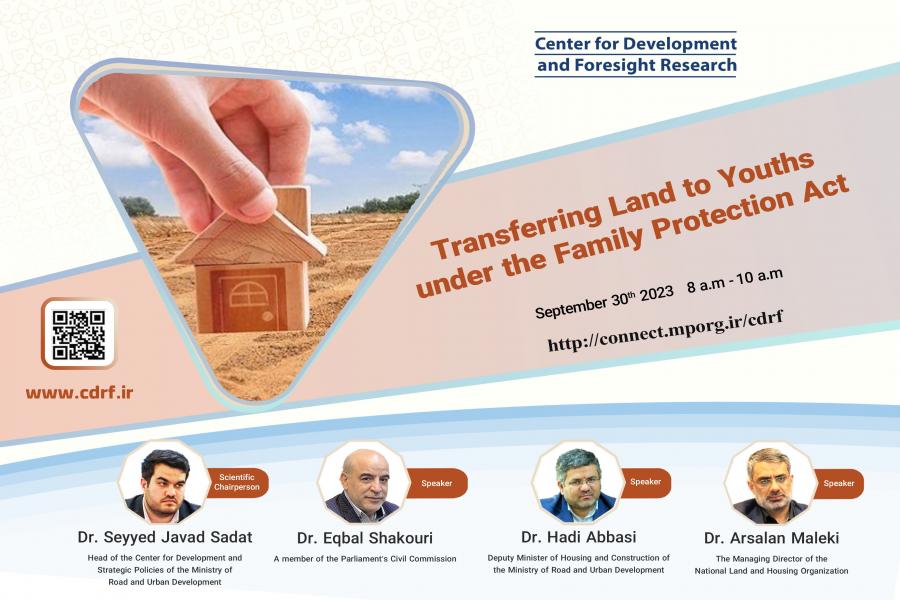
Transferring lands to youths under the Family Protection Act is a positive step in the right direction.
The conference of "Transferring Lands to Youths under the Family Protection Act: Challenges and Policy Recommendations" was held by the participation of notable figures. It is stated that the government is committed to supporting the family and youth population, and the land transfer program is a positive step in the right direction. Also, it is pointed out that it is important to ensure that the program is implemented effectively and efficiently, and that all eligible households are able to benefit from it.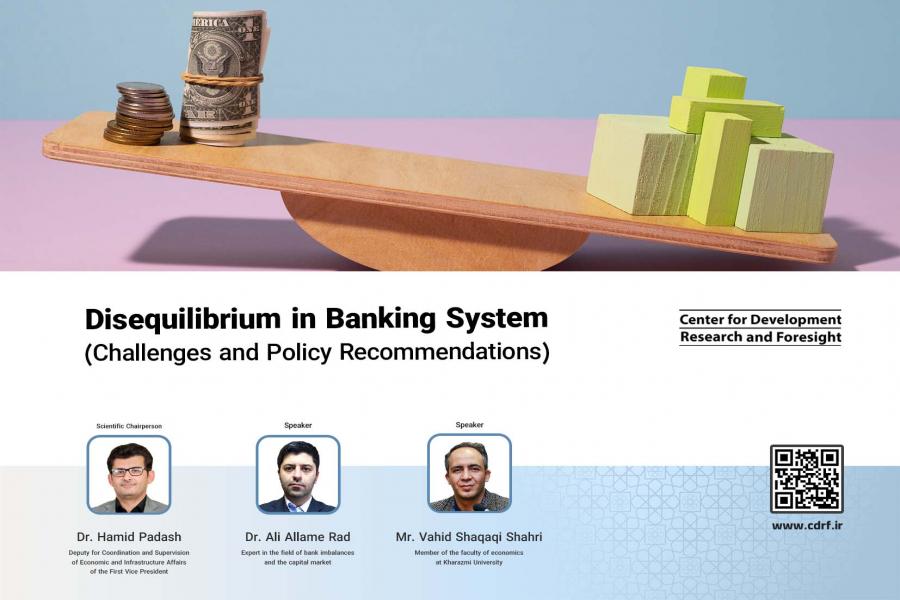
Disequilibrium in Banking System: Challenges and Policy Recommendations
The banking sector's disequilibrium has emerged as a pervasive and enduring challenge within the nation's macroeconomic framework. A series of strategic missteps have plagued the banking sector over the preceding four decades, including: the absence of unified Central Bank oversight from the late 1960s until 1994, despite formal recognition (substantive supervision remained deficient), the premature privatization of the banking industry without adequate national economic preparation, the imposition of government expenditures on private and non-governmental banks, particularly to offset a portion of the budget deficit, the perpetuation of a traditional view of money as a private commodity (a primary factor exacerbating domestic inflation), and vacillation between disparate economic schools, shifting from socialist to capitalist ideologies.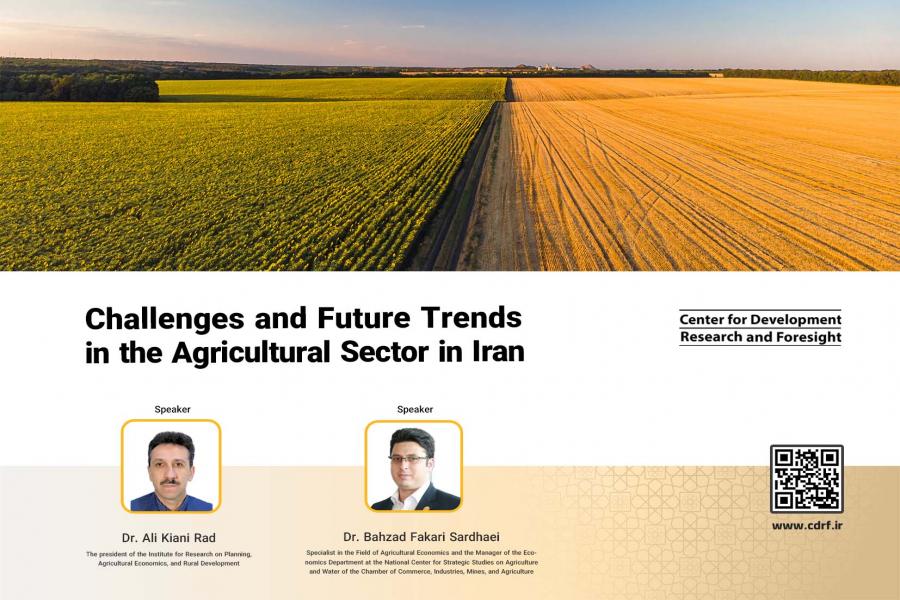
Challenges and Future Trends in the Agricultural Sector in Iran
Agriculture plays a critical role in Iran's economy, providing employment for over 15% of the workforce. While the sector holds immense potential for growth and development, it also faces significant challenges. Identifying these challenges and their impact on the agricultural system is essential for policymakers and stakeholders to formulate effective and targeted policies that address both current and potential issues, thereby enhancing the sector's resilience and enabling it to achieve sustainable development goals.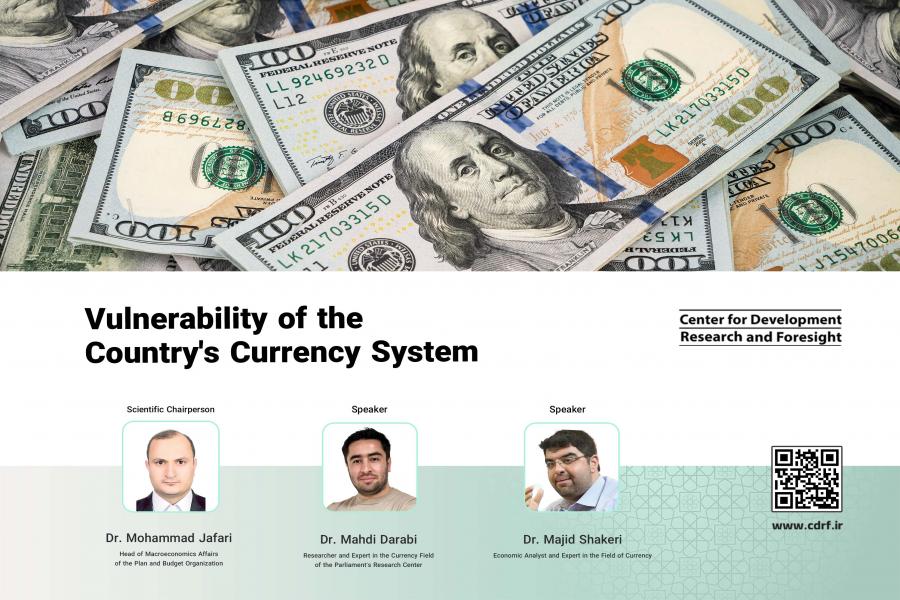
A Review of the Country's Foreign Exchange System: Identifying Vulnerabilities, Addressing Challenges, and Formulating Effective Policy Recommendations.
Exchange rates, as critical macroeconomic indicators, play a pivotal role in assessing a nation's economic resilience in the face of diverse shocks and uncertainties. Guided by their unique economic and political landscapes, as well as their status as oil exporters or importers, countries adopt specific currency regimes, each with its distinct set of requirements and constraints. An oil-exporting nation's economic priorities and strategies may diverge significantly from those of an oil-importing nation.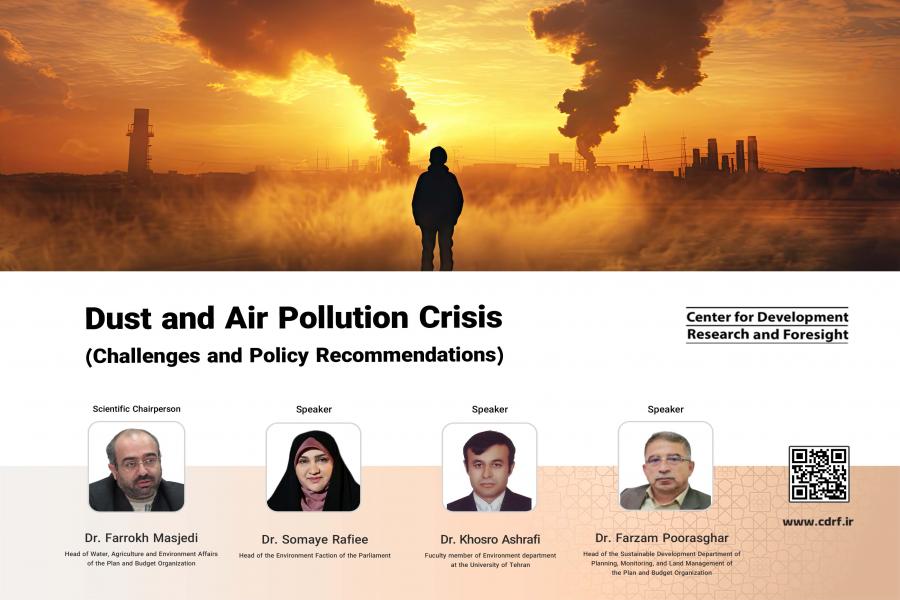
Dust and Air Pollution Crisis
The phenomenon of airborne dust particles as pollutants has detrimental implications for regions exposed to it. The challenges posed by dust and sandstorms are manifold, including weak environmental diplomacy in addressing transboundary environmental risks, overlapping responsibilities of government agencies, the growth of domestic dust emission sources influenced by deficiencies in water resource management, a lack of understanding of the interconnectedness of gradual disasters such as drought, desertification, land degradation, and dust storms, and the adoption of reactive rather than proactive approaches.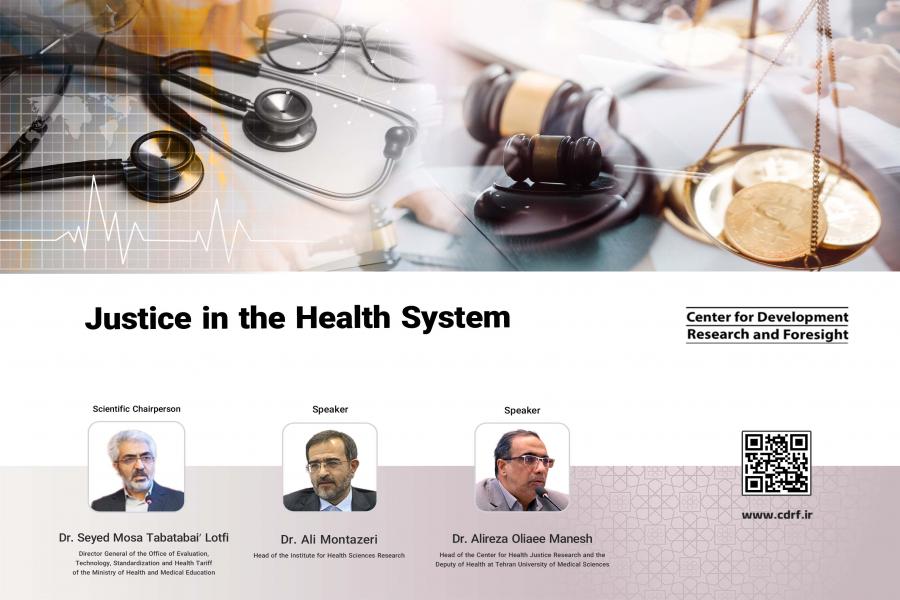
Justice in the Healthcare System
In the realm of healthcare, justice signifies equal access to healthcare services for all individuals. Key indicators for evaluating justice in health include justice in distribution, payment, access, and financial provision. Health equality entails implementing policies and allocating resources in a manner that individuals with fewer resources and those facing deprivation and discrimination (due to factors such as race, gender, age, disability, or income) experience significant improvements in their health and quality of life.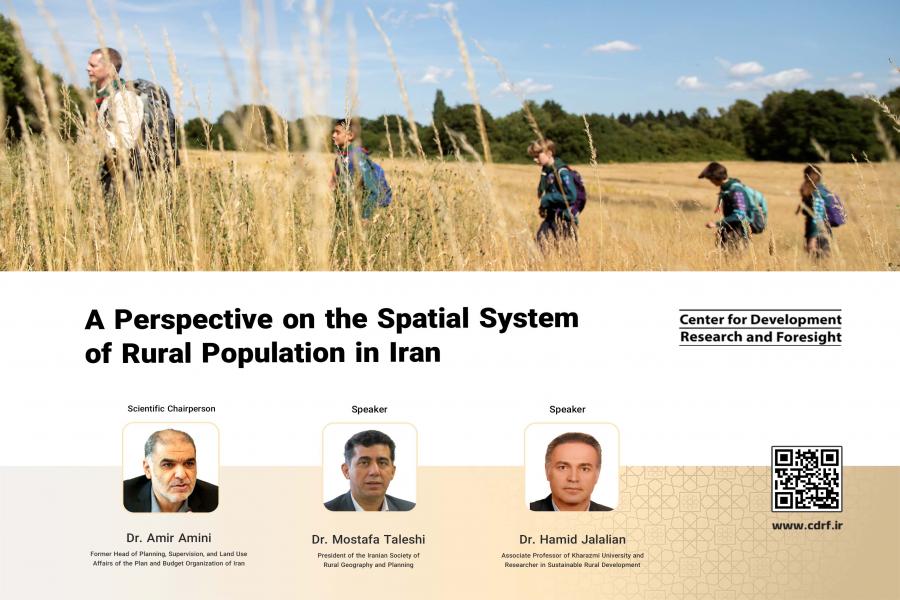
Exploring the Spatial Structure and Characteristics of Rural Population in the Country
Given the significance of the subject and the rural microsystem's role in shaping Iran's broader land area macro-ecosystem, an initial assessment of rural areas based on selected macro-social, economic, physical, and institutional indicators reveals that this microsystem faces obstacles in fulfilling its intended role in the national development landscape. These challenges have negatively impacted the rural system's vitality due to their cascading effects.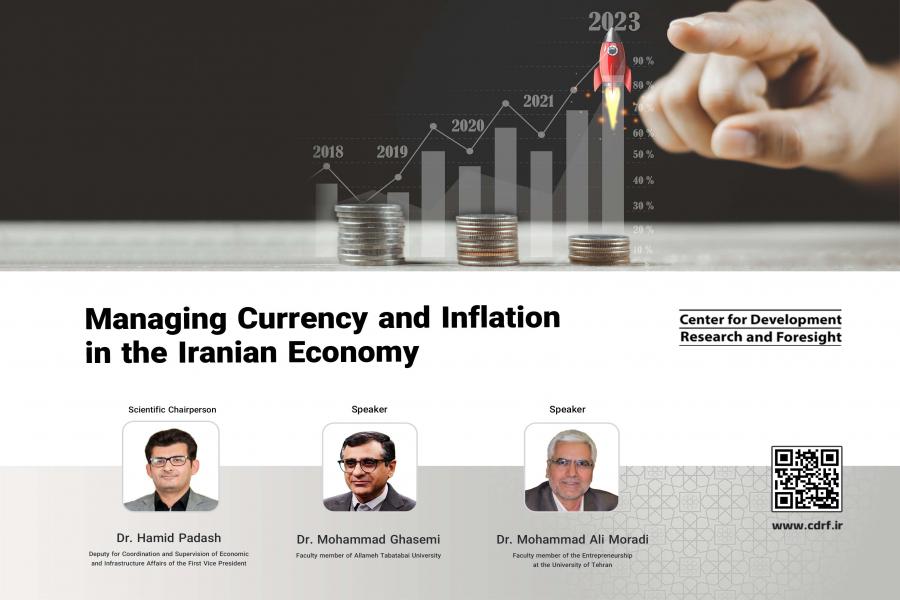
Exchange Rate and Inflation Policies in Iran's Economy
Inflation and exchange rate fluctuations have been persistent challenges in Iran's economy for several decades, leaving policymakers grappling with these issues. Double-digit inflation rates and currency shocks have become almost commonplace, characterizing the country's macro-economy for nearly half a century. However, in the past five years, these two issues have exacerbated Iran's economic situation, leading to unprecedented levels of inflation and exchange rates. Addressing inflation has become a priority in the country's policymaking, as reflected in the current year's slogan.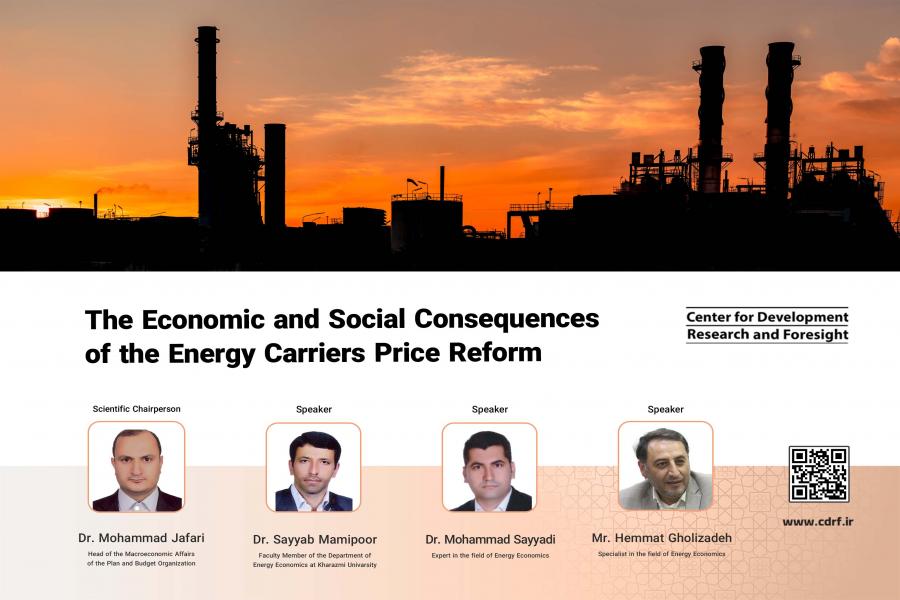
The Economic and Social Consequences of the Energy Carriers Price Reform
Given the significant role of energy in Iran’s economy, the pricing of energy carriers, particularly gasoline, has always been a critical factor in the implementation of government policies and the overall economy of Iran. The Energy Subsidy Reform policy and the appropriate pricing method have consistently posed challenges, with various governments grappling with economic, social, and environmental challenges in gasoline price reforms.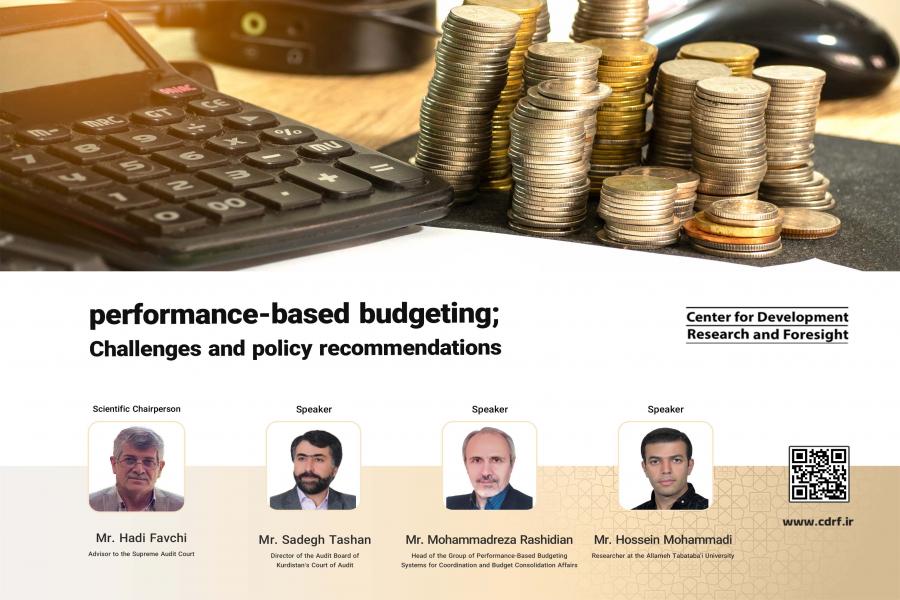
performance-based budgeting; Challenges and policy recommendations
Performance-based budgeting fosters optimal resource utilization, enhances productivity through efficiency improvement, facilitates the achievement of goals, aligns strategic objectives with operational plans, and promotes transparency and accountability. When properly implemented and scientifically managed, this type of budgeting lays the groundwork for good governance and facilitates the realization of societal values.
Maritime Development is a Key to Boast Economic Growth
The recent conference at the Center for Development Research and Foresight highlighted the growing importance of the maritime economy to the country's future. Experts and officials convened to discuss the potential of the seas and coasts to drive growth, create jobs, and address some of the country's long-term challenges.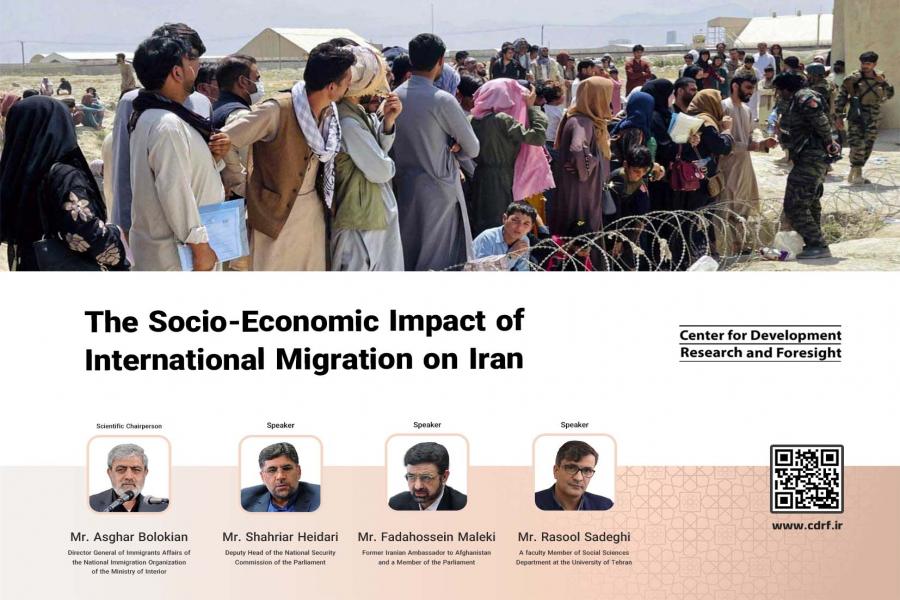
The Socio-Economic Impact of International Migration on Iran
As the world grapples with the complexities of mass migration, Iran finds itself at the center of a regional storm. Nestled between conflict-ridden Iraq and Afghanistan, the country has become a haven for millions of refugees seeking refuge and a better life. This influx, however, has brought with it a multitude of challenges, prompting calls for a comprehensive national response.
The Role of Universities in the Governance and Development of the Country; The Duality of Research-Centric or Problem-Centric
The conference at the Center for Development and Foresight Research titled “The Role of Universities in the Governance and Development of the Country; The Duality of Research-Centric or Problem-Centric” addressed the role of universities in the governance and development of a country. It is stated that universities have four main responsibilities: educating and training specialized human resources, advancing the frontiers of knowledge, providing services to society, and promoting societal culture.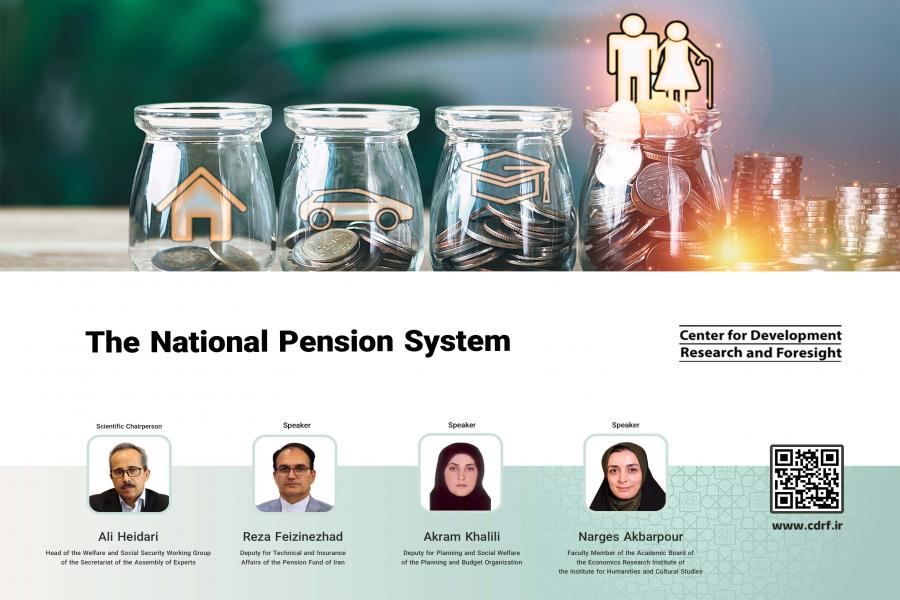
Country’s Retirement System: Challenges and Policy Recommendations
In the conference at the Center for Development Research and Foresight titled “Country’s Retirement System: Challenges and Policy Recommendations”, it is stated that Iran's retirement system is facing a number of challenges, including demographic changes, economic instability, and inadequate coverage for informal sector workers. The government is considering reforms to address these challenges, such as increasing the retirement age, limiting early retirement, and reducing the rate of pension accrual. However, some experts are concerned that these reforms may not be enough to save the system in the long run.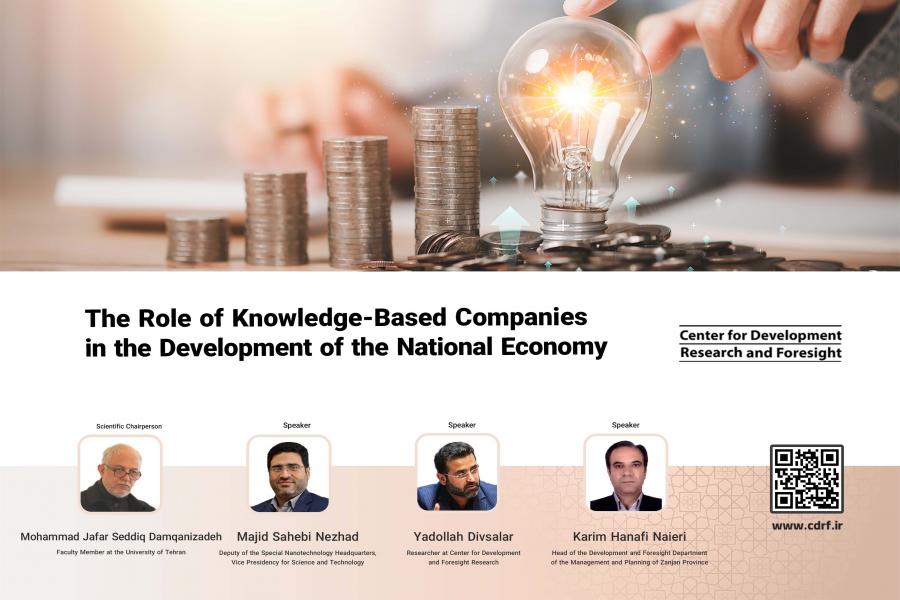
The Role of Knowledge-Based Companies in the Development of the National Economy
The conference titled “The Role of Knowledge-Based Companies in the Development of the National Economy” was held at the Center for Development Research and Foresight to discuss the role of knowledge-based companies in the country's development. The speakers at the conference emphasized the importance of knowledge-based companies for Iran's economic future, due to factors such as sanctions, the country's economic structure, and its geographical location.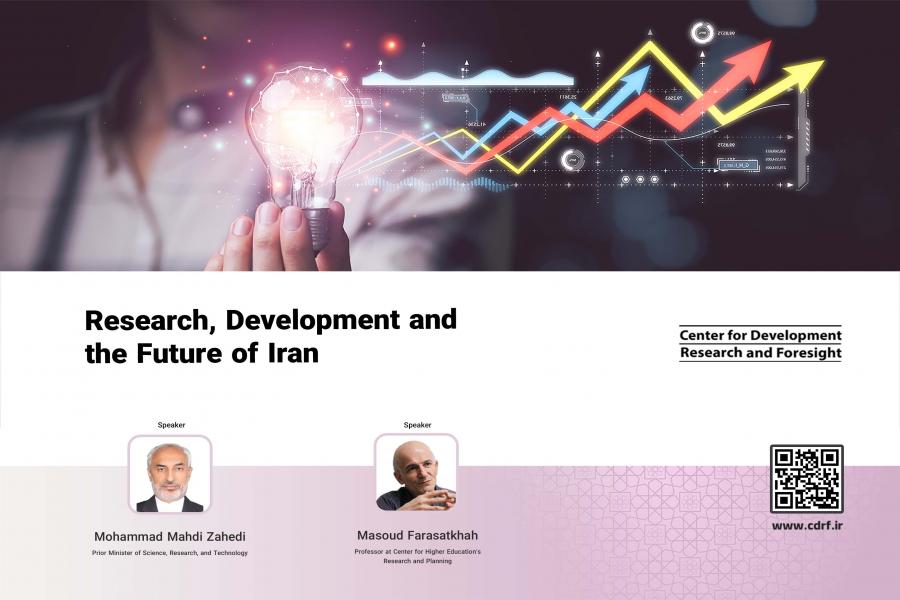
The future of Iran from the lens of Scholars
Iranian officials and experts are calling for a major shift towards "big science" as the key to unlocking the country's full potential and navigating the complexities of the 21st century. This comes amidst a heated debate on the role of science in Iran's development, with emphasis placed on moving beyond small-scale research towards large-scale initiatives the Center for Development Research and Foresight.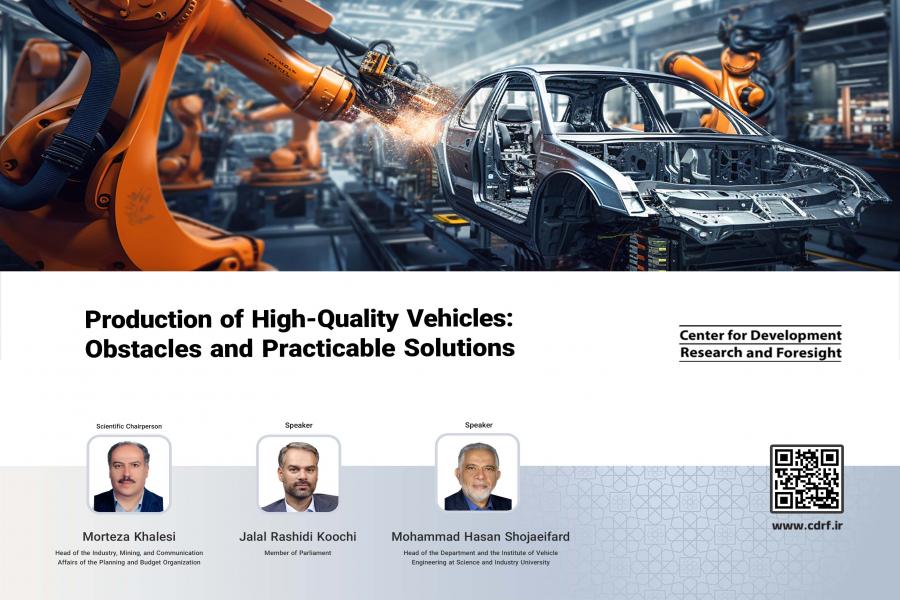
High-Quality Automative Production: Obstacles and Practicable Solutions
In the conference at the Center for Development Research and Foresight it is declared that while Iran's auto industry is roaring back to life, its path to success is far from smooth. With a mix of challenges and opportunities, the country's carmakers are navigating a complex landscape of sanctions, government control, and a growing demand for mobility.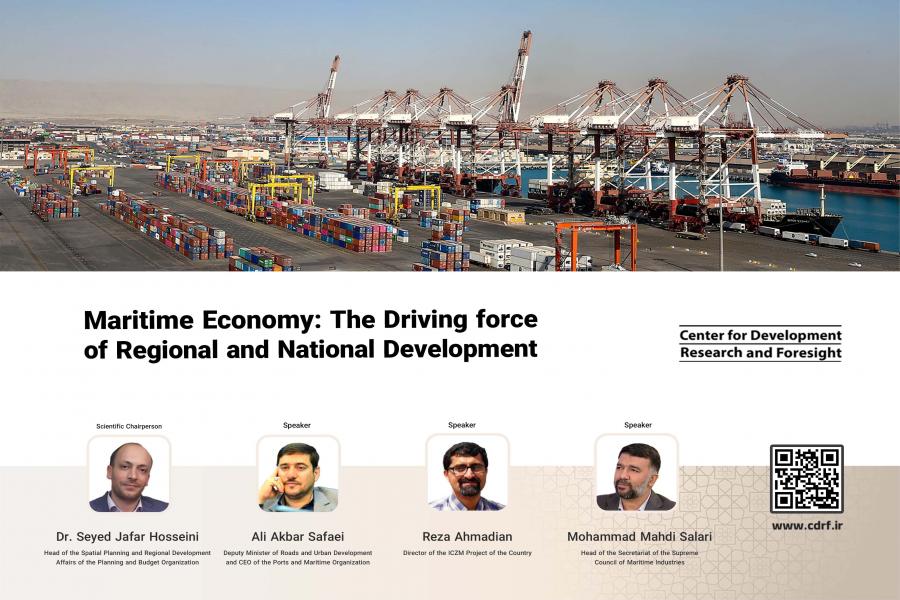
Maritime Development is a Key to Boast Economic Growth
The recent conference at the Center for Development Research and Foresight highlighted the growing importance of the maritime economy to the country's future. Experts and officials convened to discuss the potential of the seas and coasts to drive growth, create jobs, and address some of the country's long-term challenges.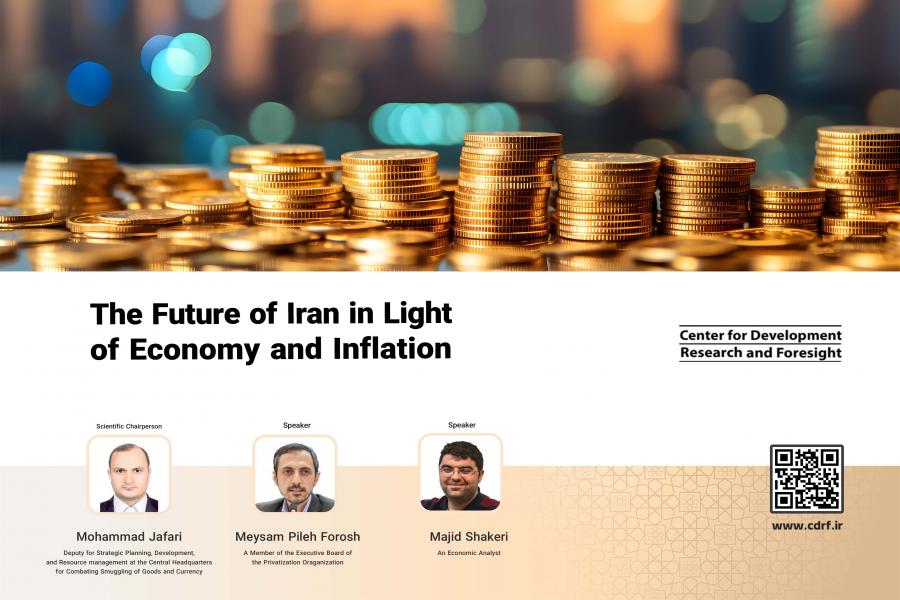
The Future of Iran: From an Economic Perspective
The Center for Development Research and Foresight hosted a pivotal conference titled “The Future of Iran: From an Economic Perspective” with the participation of leading economists and policymakers pointing out the persistent inflation, anemic growth, and deep-seated structural issues.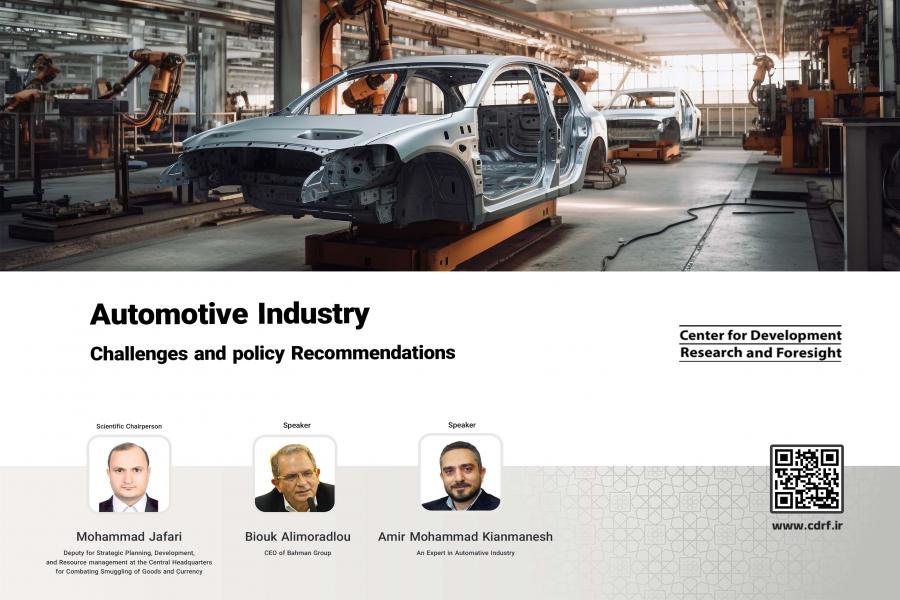
Automotive Industry: Challenges and Policy Recommendations
The recent conference at the Center for Development Research and Foresight, titled "Automotive Industry: Challenges and Policy Recommendations," was held with the participation of notable figures. These included Mohammad Jafari, Deputy for Strategic Planning, Development, and Resource Management of the Central Headquarters for Combating Smuggling of Goods and Currency; Biouk Alimoradlou, CEO of Bahman Group; and Amir Mohammad Kian Manesh, an expert in the automotive industry.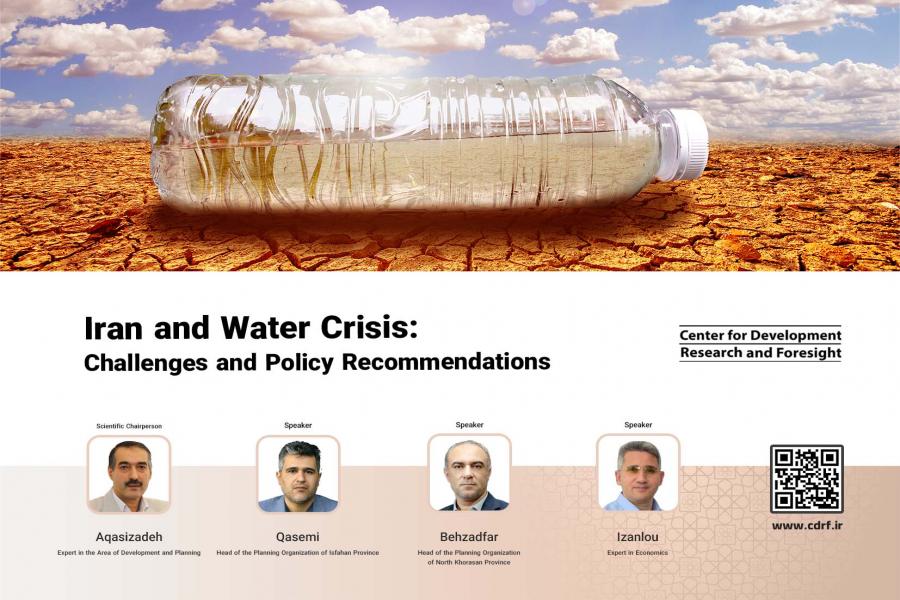
Iran's Water Crisis: A Looming Threat, Experts Warn
Iran's water crisis, long simmering beneath the surface, has reached a boiling point, according to experts who gathered at a conference titled “Iran's Water Crisis: A Looming Threat, Experts Warn” at the Center for Development Research and Foresight. The conference brought together leading figures in planning, development, economics, and water resource management to discuss the challenges and potential solutions to this pressing issue.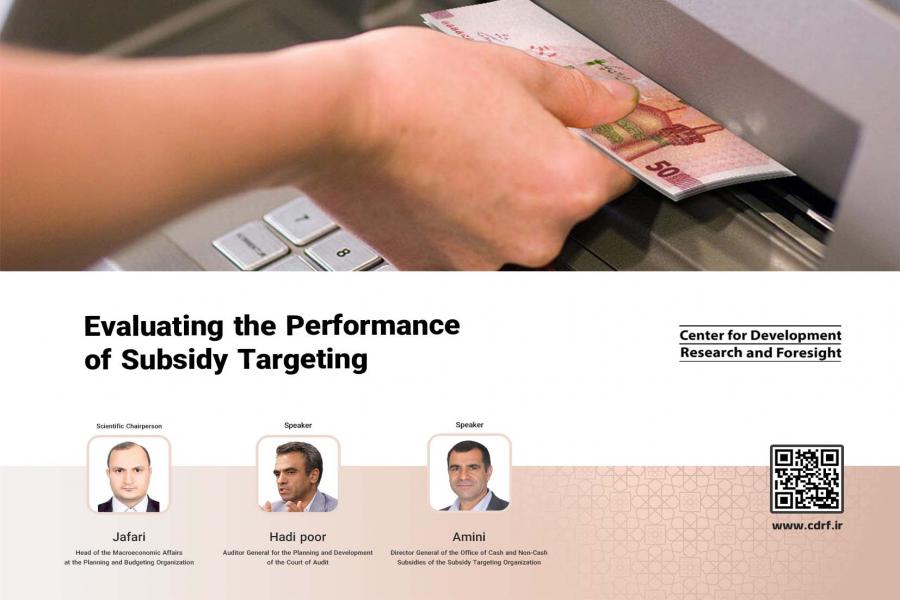
Evaluating the Performance of Subsidy Targeting
A heated debate unfolded at the conference titled “Evaluating the Performance of Subsidy Targeting” at the Center for Development Research and Foresight with key figures clashing over the effectiveness and future of the nation's complex support system.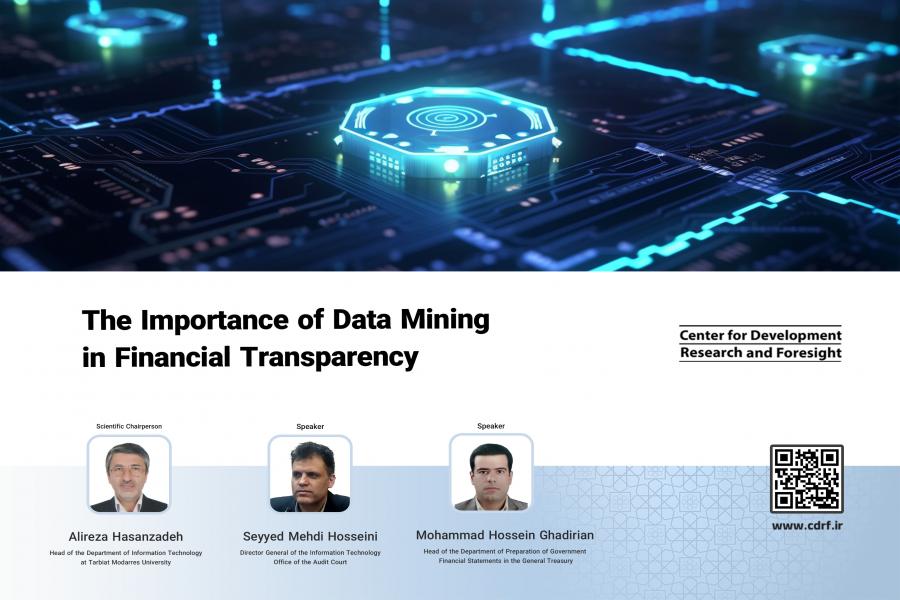
The Importance of Data Mining in Financial Transparency
The recent conference at the Center for Development Research and Foresight brought together experts to discuss how data governance and mining can improve the country's budgeting process. The conference was part of an ongoing series aimed at improving budget transparency and efficiency.
Parliamentary Intervention in Budgeting: A Scrutiny-Seeking Issue
The Conference titled “Parliamentary Intervention in Budgeting: A Scrutiny-Seeking Issue” with a concentration on improving the budgeting process in Iran, held at the Center for Development Research and Foresight, brought together experts to discuss the role of parliament in budget decision-making. The conference highlighted the ongoing debate about the extent to which parliament should be involved in the budgeting process, with some arguing for more oversight and others emphasizing the need for executive flexibility.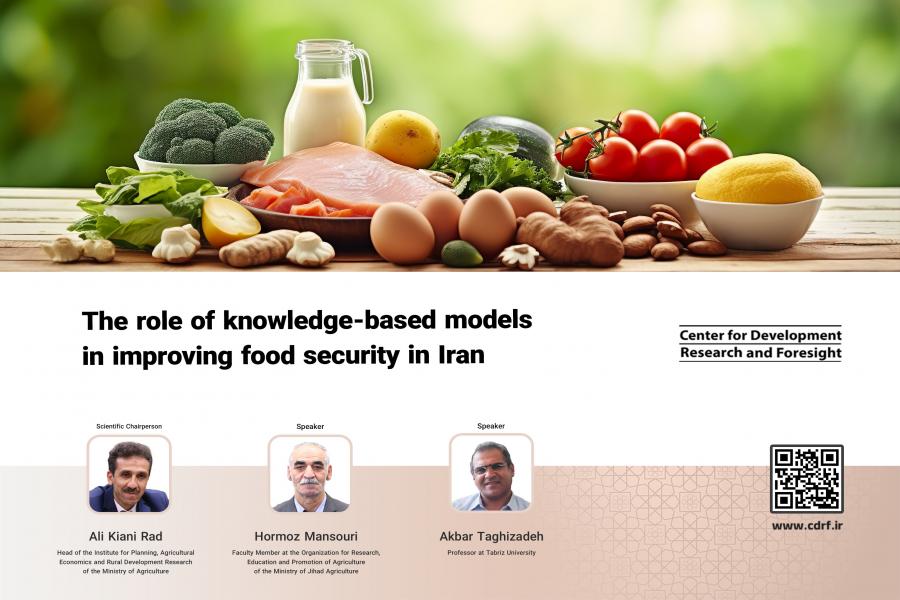
The Role of Knowledge-Based Models in Improving Food Security in Iran
The conference titled “The Role of Knowledge-Based Models in Improving Food Security in Iran” at the Center for Development Research and Foresight brought together experts to discuss the critical issue of food security in the country. The conference highlighted the challenges facing Iran's agricultural sector and explored potential solutions.
Shedding light on the Minimum Wage Policy in Iran
The recent conference titled “Shedding light on the Minimum Wage Policy in Iran” at the Center for Development Research and Foresight brought together economists and policymakers to discuss the country's wage policies. Hojjatollah Mirzaei, a faculty member at Allameh Tabataba'i University, criticized the recent wage hikes as inadequate and unevenly implemented. He argued that they failed to keep pace with inflation, leaving workers worse off, and called for the government to be more transparent about the basis for the increases. Mirzaei also expressed concern about the lack of consistency across different sectors, noting that some firms struggle to comply with the mandated increases. He emphasized the need for a more nuanced approach that considers the specific challenges of different industries.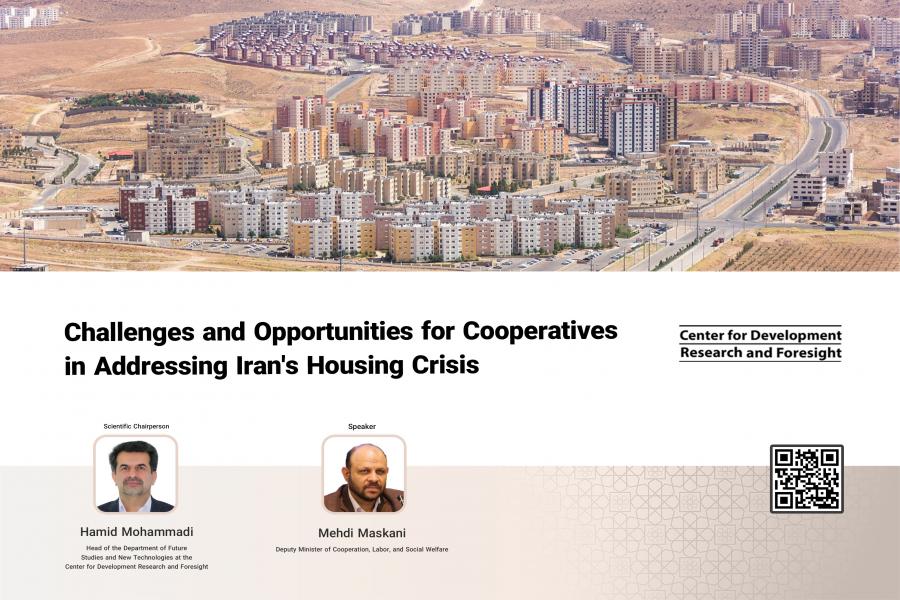
Challenges and Opportunities for Cooperatives in Addressing Iran's Housing Crisis
The recent conference of “Challenges and Opportunities for Cooperatives in Addressing Iran's Housing Crisis” at the Center for Development Research and Foresight brought together experts from various fields to address the critical issue of housing affordability in Iran. The conference highlighted the challenges faced by the Iranian housing market and explored potential solutions, particularly through the lens of cooperative housing models.
Unlocking Potential: Reforming Iran's Free Zones
The conference titled “Unlocking Potential: Reforming Iran's Free Zones” was held at the Center for Development Research and Foresight to discuss the performance of free zones in Iran. The conference was attended by stakeholders from the public and private sectors, including government officials, academics, and businesspeople.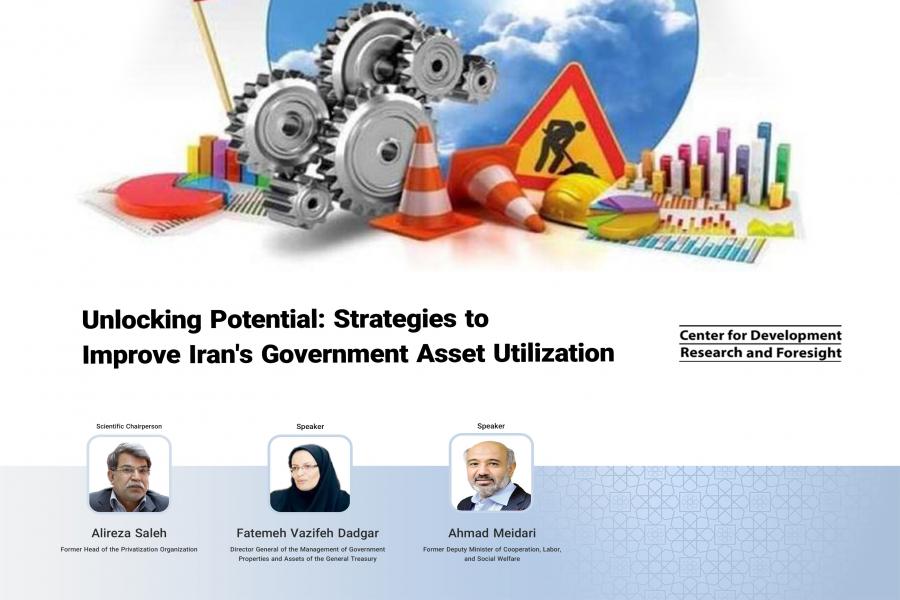
Unlocking Potential: Strategies to Improve Iran's Government Asset Utilization
In the conference titled “Unlocking Potential: Strategies to Improve Iran's Government Asset Utilization” at the Center for Development Research and Foresight aimed at addressing the challenges of managing government assets, Iranian officials discussed issues ranging from inefficient asset allocation to the need for legal reforms. The conference brought together experts from various sectors to explore strategies for maximizing the value of government-owned properties and resources.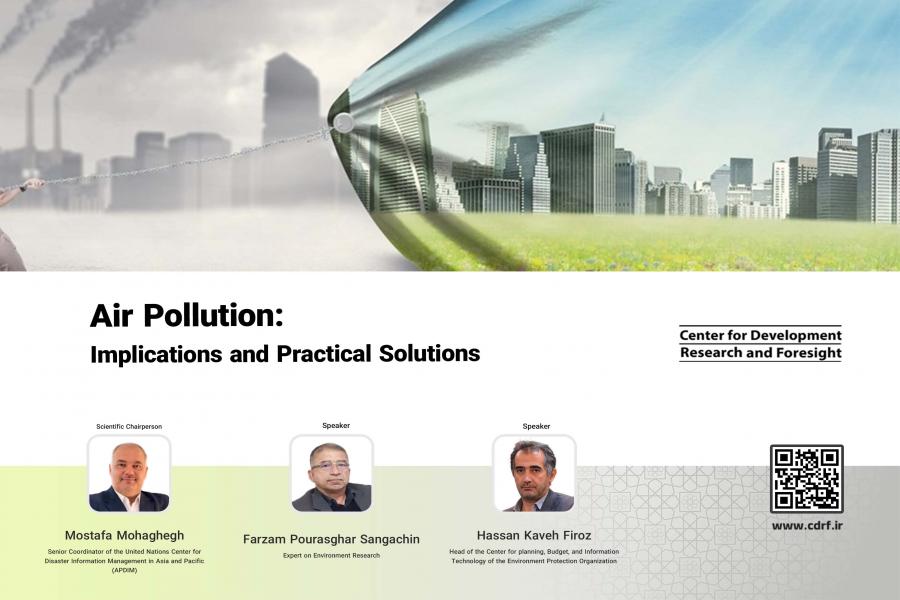
Air Pollution: Challenges and Operational Solutions
Air pollution is a major threat facing the world today, with millions of deaths attributed to it each year, according to experts who convened at the scientific-specialized conference titled "Air Pollution: Challenges and Operational Solutions" at the Center for Development Research and Foresight.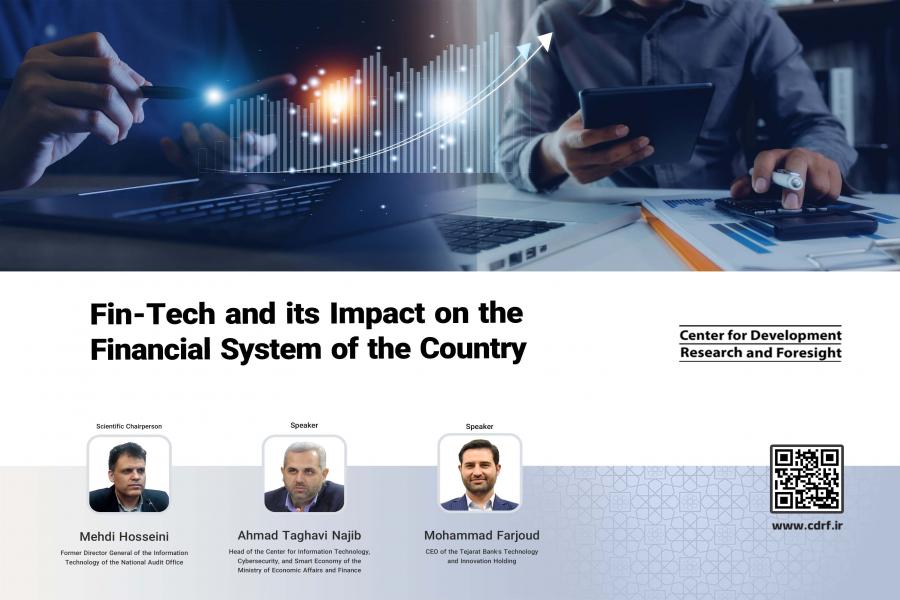
The Role of Financial Technologies in the Country’s Economic System: Challenges and Policy Recommendations
The scientific-specialized conference, titled "The Role of Financial Technologies in the Country's Economic System: Challenges and Policy Recommendations" at the Center for Development Research and Foresight brought together experts from various fields to discuss the potential and pitfalls of FinTech in Iran's developing economy.
Extraterrestrial Cultivation: Water and Food Security
In a move that could revolutionize its agricultural sector, Iran is setting its sights on extraterrestrial cultivation, aiming to tap into the water and soil resources of other countries to improve food security and expand its agricultural exports. This ambitious plan was discussed at the conference titled “Extraterrestrial Cultivation: Water and Food Security” at the Center for Development Research and Foresight.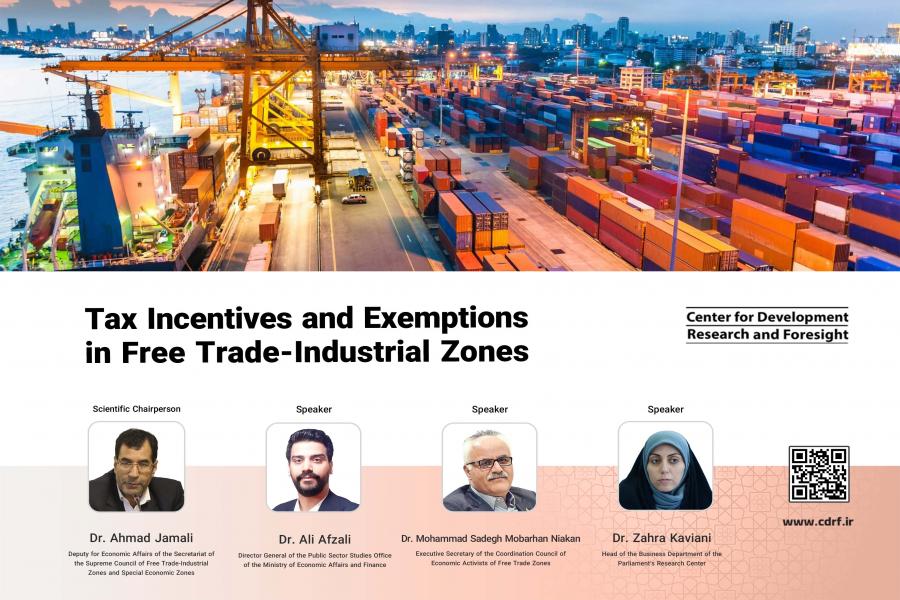
Incentives and Tax Exemptions in Free Trade and Industrial Zones
Concerns are mounting about the effectiveness of Iran's free trade zones, with their number ballooning from 8 to 18 and their impact falling short of expectations. This has sparked calls for reform, focusing on specialization, targeted incentives, and a renewed emphasis on exports.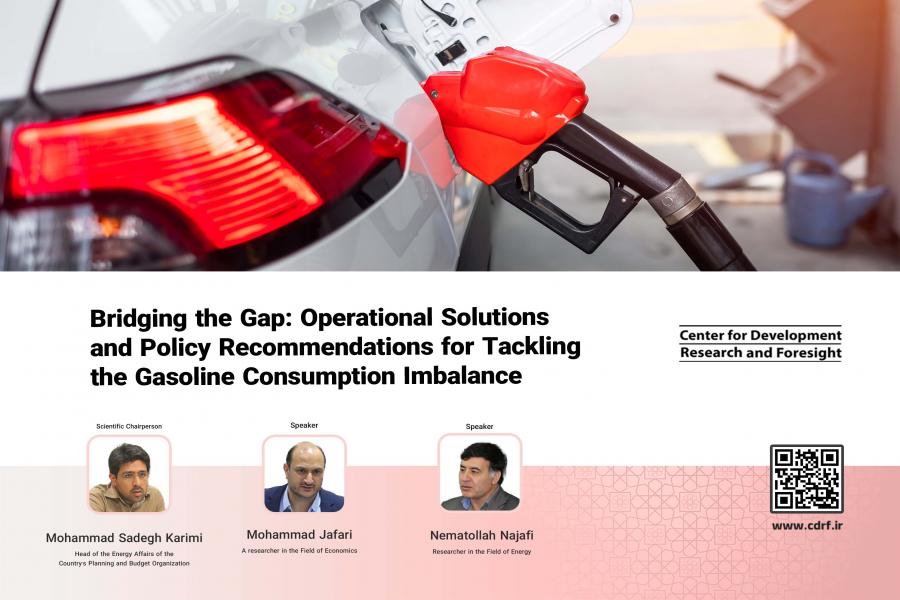
Bridging the Gap: Operational Solutions and Policy Recommendations for Tackling the Gasoline Consumption Imbalance
Iran is facing a growing problem at the pump. The country is burning through gasoline at an alarming rate, and experts are calling for action. In the recent conference titled “Bridging the Gap: Operational Solutions and Policy Recommendations for Tackling the Gasoline Consumption Imbalance” at the Center for Development Research and Foresight, key figures from government and academia discussed a range of solutions to bridge the gap between Iran's fuel consumption and supply.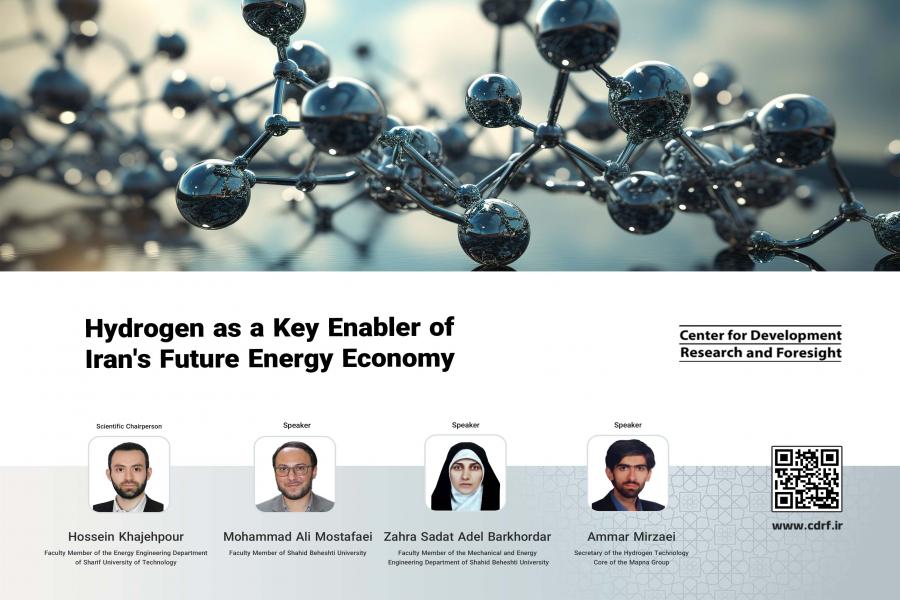
Hydrogen as a Key Enabler of Iran's Future Energy Economy
Could hydrogen be the key to unlocking Iran's clean energy future? That's the question experts tackled at the recent conference titled “Hydrogen as a Key Enabler of Iran's Future Energy Economy” hosted by the Center for Development Research and Foresight (CDRF).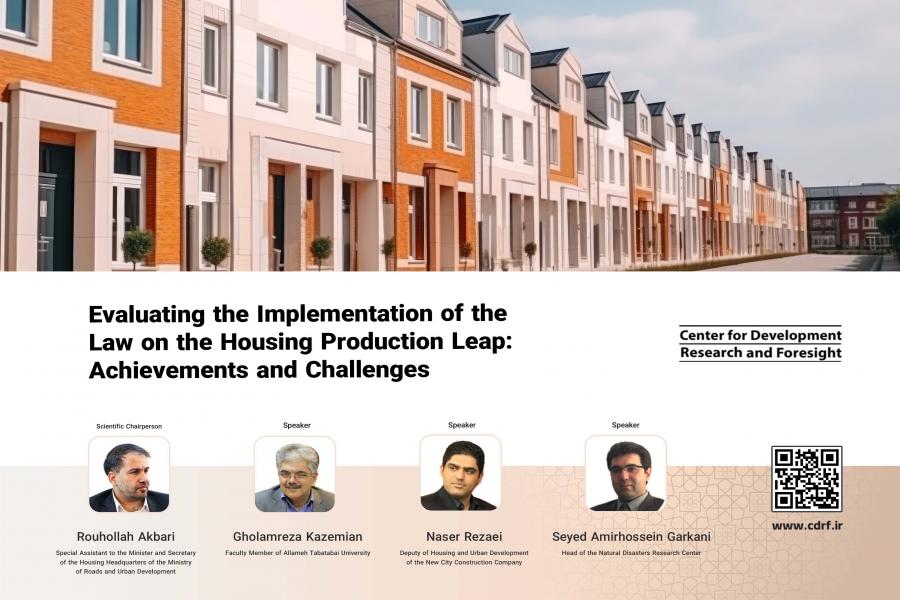
Evaluating the Implementation of the Law on the Housing Production Leap: Achievements and Challenges
In a recent conference titled "Evaluating the Implementation of the Law on the Housing Production Leap: Achievements and Challenges" hosted by the Center for Development Research and Foresight (CDRF) it has been an enlightening debate surrounding the effectiveness of the Law on Housing Production Leap.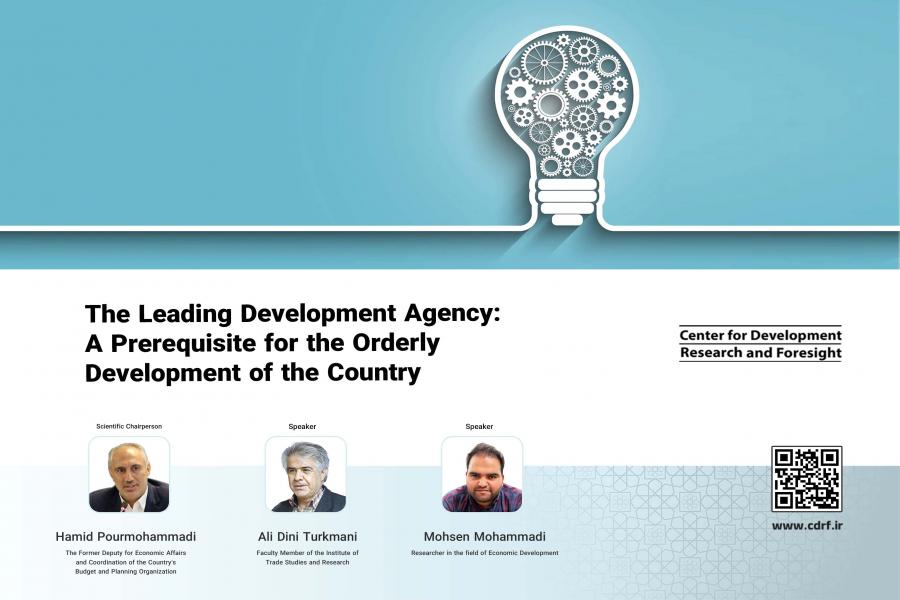
The Leading Development Agency: A Prerequisite for the Orderly Development of the Country
Iran might be looking to a new approach to development. The recent conference at the Center for Development Research and Foresight in tandem with the University of Tehran's Faculty of Governance titled "The Leading Development Agency: A Prerequisite for the Orderly Development of the Country" addressed the significance of a super agency with more power and a sharper focus than existing government bodies.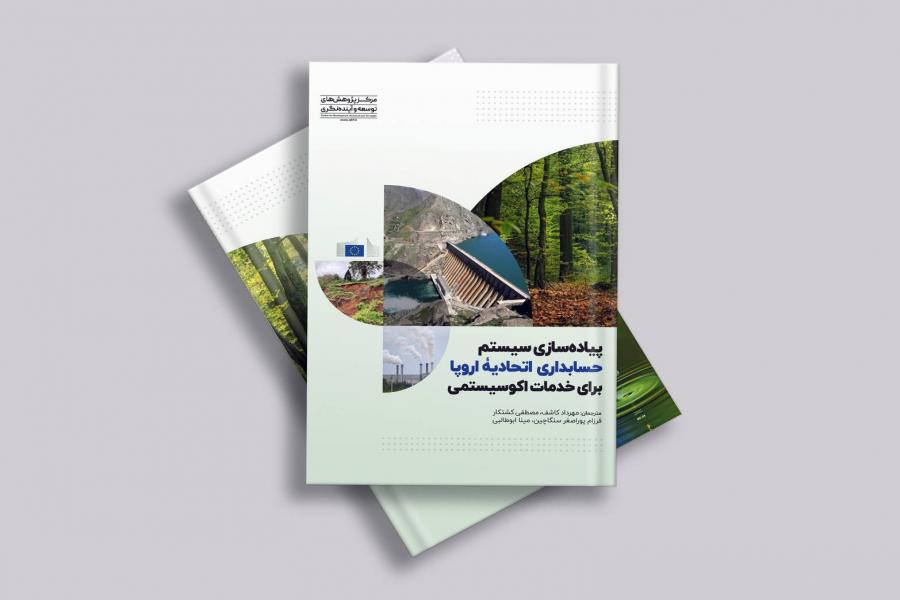
کتاب پیاده‌سازی سیستم حسابداری اتحادیه اروپا یرای خدمات اکوسیستمی منتشر شد
ترجمه کتاب «پیاده‌سازی سیستم حسابداری اتحادیه اروپا یرای خدمات اکوسیستمی» به نویسندگی لساندرا لانوت، سازا والیچیلو، کیارا پلس، گریزیا زولیان و یواخیم میس و به ترجمه مهرداد کاشف، مصطفی کشتکار، فرزام پوراصغر سنگاچین و مینا ابوطالبی توسط انتشارات مرکز پژوهش‏‌‎های توسعه و آینده ‏نگری منتشر شد..jpg)
SMEs and Strategies to Overcome Barriers: The Role of Strategically-Aligned and Geographically-Proximate Countries
An international meeting held on April 24, 2024, at the Center for Development Research and Foresight, brought together experts to discuss the importance of small and medium-sized enterprises (SMEs) for economic growth and job creation, with a particular focus on the role of strategically-aligned and geographically-proximate countries. The meeting, titled "SMEs and Strategies to Overcome Barriers: The Role of Strategically-Aligned and Geographically-Proximate Countries," was led by Aidin Salamzadeh, the vice dean of the faculty of business management at the University of Tehran, who welcomed professor Galina Shirokova, the director of the Center for Strategic Entrepreneurship at HSE University of Saint Petersburg, Morteza Mohammadi Zanjireh, a faculty member at Imam Khomeini International University, and 17 university professors from St Petersburg University, Moscow State University, University of Calgary, and University of Notre Dame. 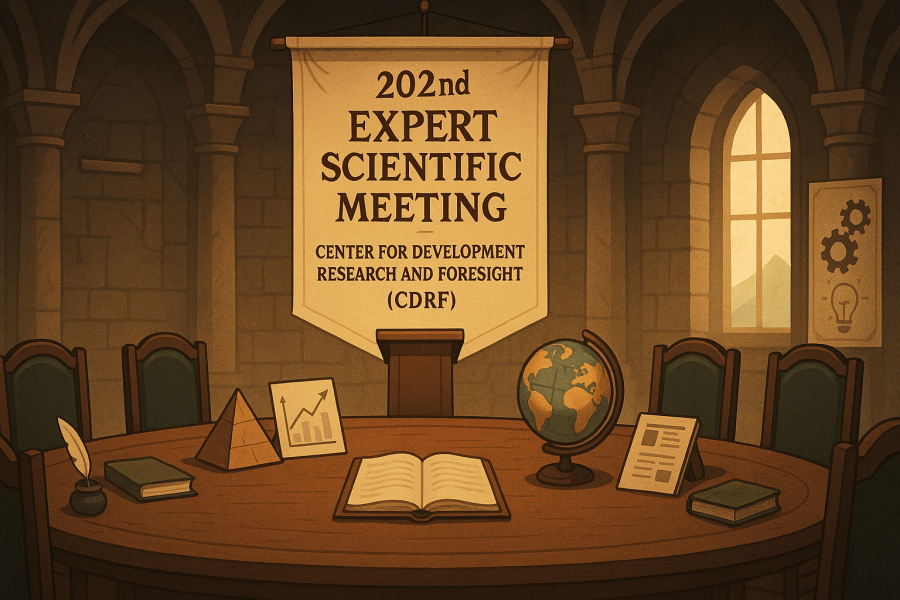
The 202nd Expert Scientific Meeting of the Center for Development Research and Foresight (CDRF) was held.
According to the Public Relations Office of the CDRF, the fifth international meeting and the 202nd expert scientific meeting of the CDRF was held under the title “The Impacts of Land Degradation and Climate Change on Iran's Economic and Social Development.” In this meeting, Mostafa Mohaghegh, Senior Coordinator of the United Nations Asian and Pacific Center for the Development of Disaster Information Management (APDIM), served as the scientific chair of the meeting. In addition, Farzam Pourasghar Sangachin, a researcher and expert in the field of environment, and Sanjay Kumar Srivastava, Chief of Disaster Risk Reduction at the United Nations Economic and Social Commission for Asia and the Pacific (ESCAP), participated as keynote speakers, presenting their viewpoints.
The 201st Expert Scientific Meeting of the Center for Development Research and Foresight (CDRF) was held.
According to the Public Relations Office of the CDRF, the eleventh session of the series entitled “The Future Outlook of Iran” and the 201st meeting of the CDRF was held under the title “A Critical Assessment of the Vision of the Islamic Republic of Iran in the Horizon of 1404 AH.”.png)
The 198th Expert Scientific Meeting of the Center for Development Research and Foresight (CDRF) was held.
According to the Public Relations Office of the CDRF, the eighth session of the “Future Vision of the Islamic Republic of Iran” series and the 198th meeting of the CDRF was held under the title “Oil in Iran’s Vision.” In this meeting, Ali Agha-Mohammadi, Head of the Economic Group of the Office of the Supreme Leader and non-ex officio member of the Expediency Discernment Council of the System, served as the scientific chair of the meeting. Additionally, Asghar Ebrahimi Asl, former Deputy Minister of Oil during the ninth, tenth, and eleventh administrations, and Mohammad Reza Akbari, faculty member at the Petroleum Faculty of Amirkabir University of Technology and Head of the Governance Working Group for General Energy Policies of the Expediency Discernment Council of the System, participated as keynote speakers, presenting their viewpoints.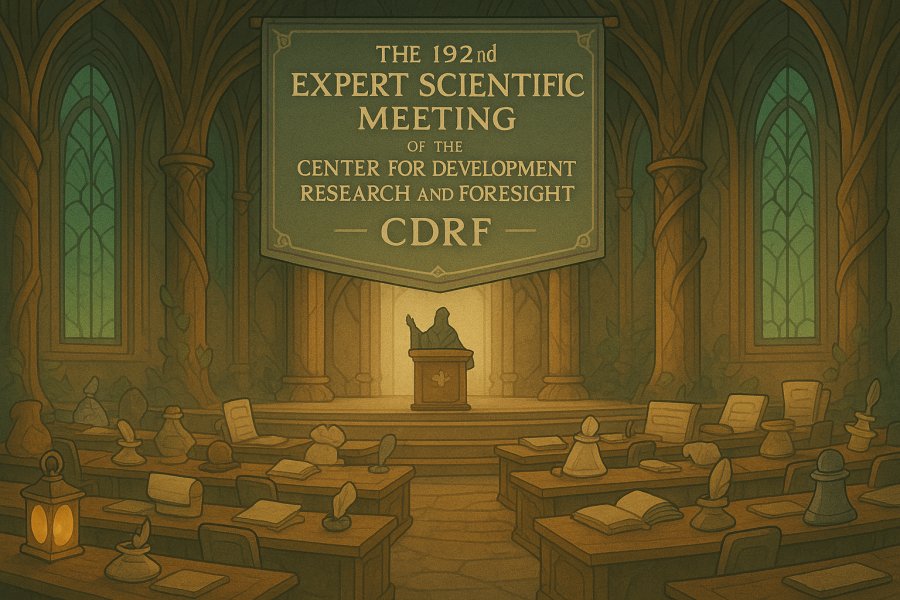
The 192nd Expert Scientific Meeting of the Center for Development Research and Foresight (CDRF) was held.
According to the Public Relations Office of the CDRF, the 192nd Expert Scientific Meeting of the CDRF was held under the title "Wildfires in the Zagros Forests: Challenges and Policy Recommendations." In this meeting, Farrokh Masjedi, Special Representative of the Head of the Plan and Budget Organization of the Islamic Republic of Iran (PBO) for the Preservation and Restoration of the Zagros Forests, served as the scientific chair of the meeting. Additionally, Mehrdad Akbarian, Representative of the Natural Resources and Watershed Management Organization, and Reza Siah Mansour, a faculty member at the Agricultural and Natural Resources Research and Education Center of Lorestan Province, participated as keynote speakers, presenting their viewpoints.
امروز : سه شنبه، ۲۸ بهمن ۱۴۰۴

